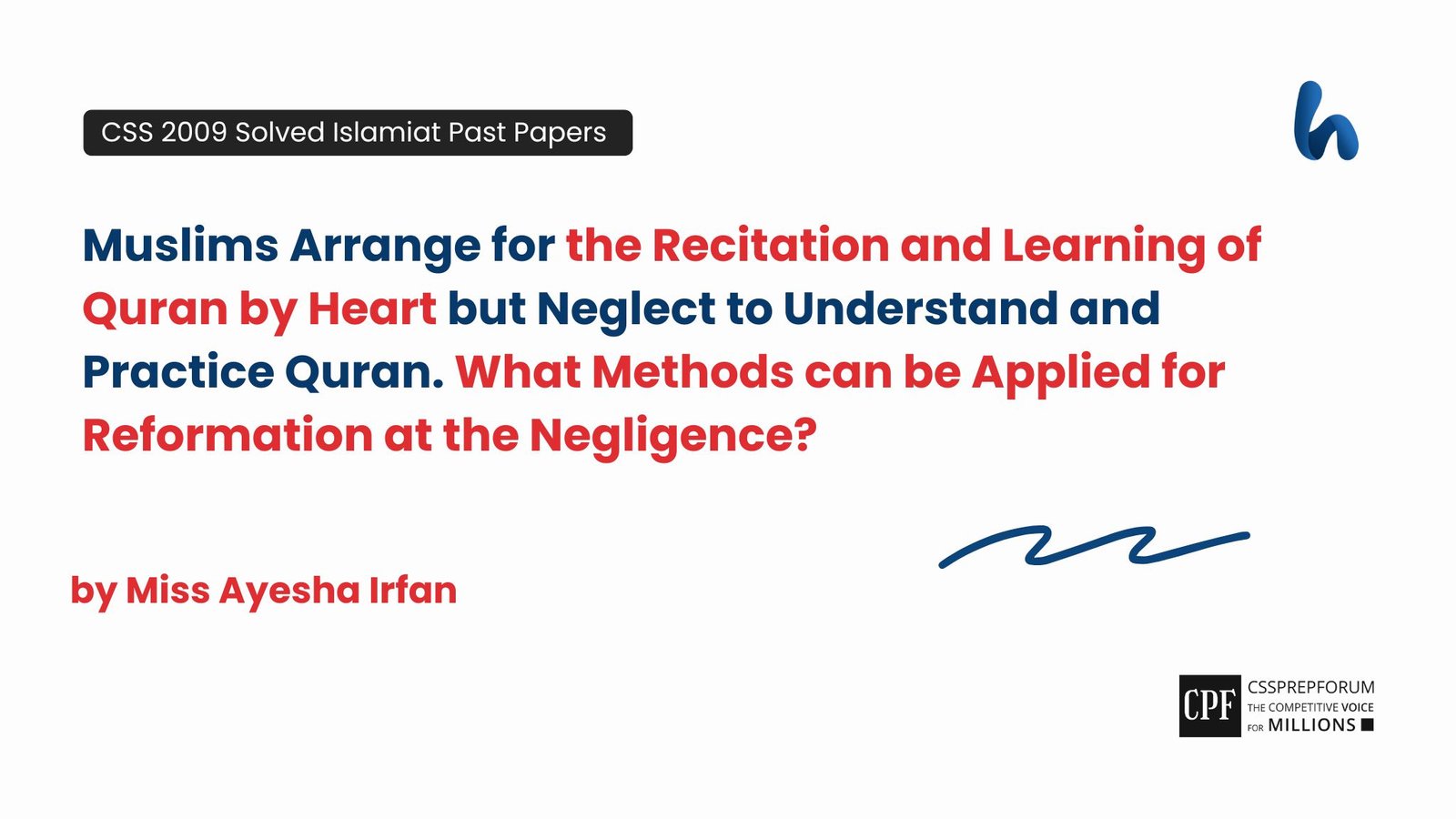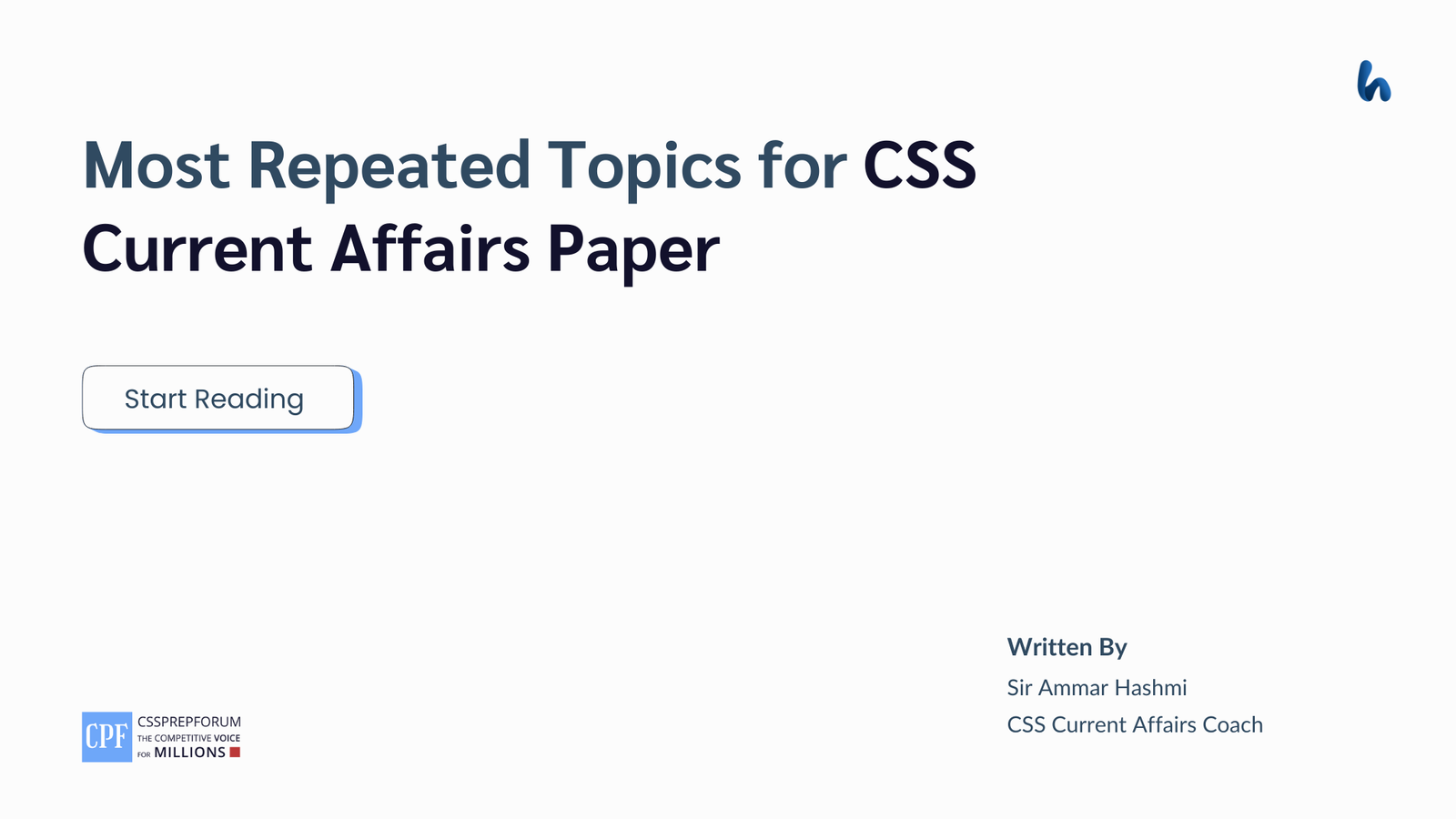CSS Solved Political Science Past Papers | Define Democratic Peace. Highlight Its Basic Norms and Discuss How It Played a Vital Role in the Political and Economic Integration of the European Union.
The following question of Political Science is attempted on the same pattern, taught by Sir to his students, scoring the highest marks in compulsory subjects for years. This solved past paper question is uploaded to help aspirants understand how to crack a topic or question, how to write relevantly, what coherence is, and how to include and connect ideas, opinions, and suggestions to score the maximum.

Outline
1- Introduction
2- What is Democratic Peace?
3- Historical context of Democratic Peace Theory
4- Basic norms of Democratic peace
- ✓ Respect for the Sovereignty
- ✓ Maintain the Territorial Integrity
- ✓ Policy of Non – Aggression
- ✓ Policy of Non-Interference
5- Political-economic scenario of the European Union
6- Role of Democratic peace in the political-economic integration of the European Union
7- Critical Analysis
8- Conclusion

Answer to the Question
Introduction
Democratic peace refers to the belief that democratic countries do not go to war with each other. This theory says that governments that do not act aggressively are more peaceful than those that do. They are accountable to their citizens and must consider public opinion when making foreign policy decisions. Moreover, democratic countries often have the institutions and processes to peacefully resolve disputes, such as a political culture, free and fair elections, and an independent judiciary. Moreover, these countries share values and norms with other democratic countries. Thus, it leads to greater cooperation and less chance of conflict. For instance, in a globalized world, states are more likely to cooperate in trade, connectivity, global issues and much more. The same goes for the socio-political integration of the European Union, in which 27 member states are integrated, following the concept of democratic peace. They all have a binding agreement-named European Union Association Agreement among them. According to this treaty, they will keep their borders open for all member states and promote free trade, and free movement of peoples, follow the rules and decisions related to combining defence, trade, etc., and avoid war or conflicts that drag them towards war. It shows unequivocally that Democratic peace is committed to the integration of the European Union.
“If we have no peace, it is because we have forgotten that we belong to each other.”
– Mother Teresa
Democratic Peace: Definition
“It is a theory that states that democratic forms of government are less likely to go into war.”
The historical context of Democratic Peace Theory
This theory was widely recognized after the first half of the 19th century. Two of the most notable political scientists, Immanuel Kant and Thomas Paine, deliberately worked on this theory. Kant discussed this in his essay Perpetual Peace: A Philosophical Sketch written in 1795, in which he held the view that a world with only constitutional republics was one of several necessary conditions for perpetual peace. Kant’s theory proposed that most people would never vote to go to war, despite being in self-defence. Therefore, the war would end if all nations were republics because no aggressors would be left. Thomas Paine made similar yet stronger claims about the peaceful nature of republics. Paine argued:
“Kings would go to war out of pride in situations where republics would not.”
(Common Sense, 1776: The Republics of Europe are always in peace)
The French social scientist Alexis de Tocqueville also argued about it. “Democratic nations were less likely to wage war.” Democratic peace theory posits that democracies and liberals are always peaceful in their foreign relations. Thus, its evolution entails those democracies never indulging in war as they always look forward to their core interests.
Basic Norms of Democratic Peace Theory
Regarding fundamental norms, democratic peace relies on various conditions and rules that emerge independently. These are given below:
- ✓ Respect for the Sovereignty
- ✓ Maintenance of Territorial Integrity
- ✓ Policy of Non-Aggression
- ✓ Policy of Non-Interference
Respect for Sovereignty
It is an important aspect and norm of democratic peace. To respect the Sovereignty of every state means that states are abiding by the laws and following the rules of liberalism: rights of the individual, liberty, consent of the governed, political Equality, Equality, and so on. So, respecting the Sovereignty of every state means that every country follows the rules set by democratic peace theory. As Albert Einstein rightly remarked: “Peace cannot be kept by force; it can only be achieved by understanding.”. Hence, it is pertinent to follow this basic norm of democratic peace theory in order to avoid war-like situations and maintain peace in the world.
Policy of Non-Aggression
States’ aggressive policies can pose an existential threat to the world. As it is seen in the past, the United States invaded Afghanistan in 2001 and Iran in 2003 because of its severe aggressive policies. It caused unrest in the South Asian region and damaged the norm of democratic peace, where non-aggression is the key. So, non-aggression is also a significant norm of democratic peace to ensure true democracy.
Policy of Non-Interference
Interference in internal affairs leads to chaos and anarchy in the world in general and in the states in particular. To ensure peace, countries must follow this norm of democratic peace to establish stability. Because infiltration into any country’s internal peace can lead to war, the Colonialism of Britain is the best example in this regard. Thus, the policy of non-interference plays a vital role in ensuring democratic peace worldwide.
Narrative of Equality
Equality is also a central aspect of democratic peace. If states and people are given equal rights, both will grow; if not, both will become revolutionary. Nowadays, it is seen that there are developed, developing, and under-developed states. They all can coexist only when Equality is provided to them; if not, a day will come when these countries invade each other to fulfil their vested interests. Hence, to maintain democratic peace, peaceful coexistence is mandatory.
The political-economic scenario of the European Union
As the European Union is a supranational collaboration of 27 member states, they embrace each other to keep their economies and politics smooth. In Why Nations Fail: The Origins of Power, Prosperity, and Poverty, economists Daron Acemoglu and James A. Robinson rightly remarked: “You can’t get your economics right if you don’t get your politics right.”
This statement clearly states that politics and economics are interlinked. Based on this prevalent concept, the EU members linked their economies and politics. In the fast-paced globalized world, if a country’s politics are falling, it is a bane for its economy. So the collaboration of the EU to save it from falling is mandatory. Even though the Brexit episode has left some scars on the EU’s face, still, the European economy is booming because there is no political unrest in the EU. Harvard’s Jeff Frieden writes, “Understanding political economy can be a powerful tool for those interested in changing governments and societies.”
The Role of Democratic Peace in European Union Political-Economic Integration
Europe has historically been a region with strong governments and significant wars and battles. However, the long-running wars between Germany and France have disastrously impacted Europe. During WWII, enormous kingdoms and empires were shattered, and democratic nation-states were established in their place. Following the war, Europe suffered significant damage, which caused problems in various areas, including the economy, politics, society, and culture.
Then, European states established rules to avoid wars. In 1985, the Schengen Agreement was signed, primarily between war-mongering France and Germany. Following that, in the late 1990s, the EU began to construct. With this endorsement, democratic peace was endorsed, and European states began practising democratic peace in order to grow their economies.
Now, at present, there is no doubt that democratic peace norms and values are playing a vital role in the political-economic integration of the European Union. For instance, all the EU members respect each other Sovereignty, territorial Integrity and non-interference policy.
“Peace does not mean the absence of conflicts; differences will always be there. Peace means solving these differences through peaceful means; through dialogue, education, knowledge; and humane ways.”
– Dalai Lama XIV
Critical Analysis
In a critical diagnosis, critics of the Democratic Peace Theory have weakened the argument that democratic states are peaceable by emphasizing their imperialist past. They said that democratic states had violated human rights throughout history because of their imperialist past. They held the view that democratic states use the heaviest mass weapons, including nuclear weapons, such as in World War 2 nuclear weapons have been used. Contrary to the critics, it has been seen that although powerful states have followed some unlawful acts, peace has prevailed in the world, most probably after decolonization. States are more prone toward peaceful agreements; Globalization is a glaring example. Thus, despite many drawbacks, democratic peace prevailed in more than 150 states worldwide.
Conclusion
To Conclude, the Democratic Theory of Peace encompasses empirical findings and most theoretical conclusions that democracies will hardly ever fight each other. Democratic Peace Theory states that economic development is also effective in ensuring and developing peace and democracy; it is stated that states will avoid war because they are economically interdependent. The establishment process of the European Union and its current integration shows how the framework of Democratic peace has become helpful for the survival and strong coexistence of the European Union.
“Peace is not a relationship between nations. It is a condition of mind brought about by the serenity of the soul. Peace is not merely the absence of war. It is also a state of mind. Lasting peace can come only to peaceful people.”
– Jawaharlal Nehru
CSS Solved Past Papers’ Essays
Looking for the last ten years of CSS and PMS Solved Essays and want to know how Sir Kazim’s students write and score the highest marks in the essays’ papers? Then, click on the CSS Solved Essays to start reading them.
CSS Solved Essays

CSS Solved General Science & Ability Past Papers
Want to read the last ten years’ General Science & Ability Solved Past Papers to learn how to attempt them and to score high? Let’s click on the link below to read them all freely. All past papers have been solved by Miss Iqra Ali & Dr Nishat Baloch, Pakistan’s top CSS GSA coach having the highest score of their students.
CSS Solved Pakistan Affairs Past Papers
Want to read CSS Pakistan Affairs Solved Past Papers and learn how to attempt them to score high? Let’s click on the link below to read them all freely. All past papers’ questions have been attempted by Sir Kazim’s students, who scored the highest in the subject.
CSS Solved Pakistan Affairs
CSS Solved International Relations’ Past Papers
Have you opted for International Relations in the CSS examination and want to score above 150? Then, click on the CSS Solved International Relations’ Past Papers by Miss Abeera Fatima, the top IR scorer and the best IR coach in Pakistan.
CSS Solved International Relations Past Papers
Articles Might Interest You!
The following are some of the most important articles for CSS and PMS aspirants. Click on any to start reading.












